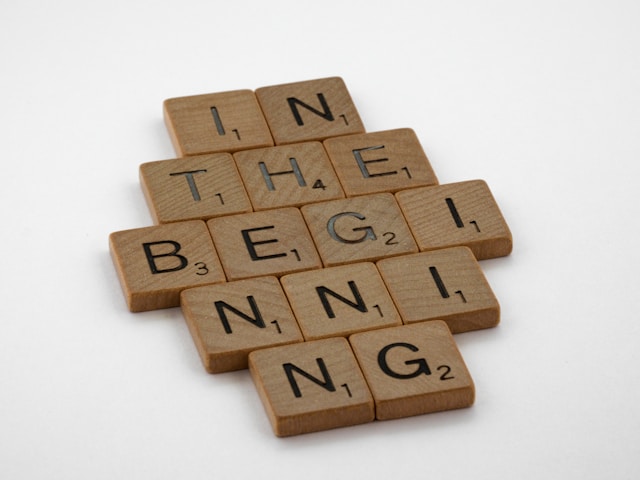The focus of most of us around Easter time is to look at the end of the gospels. After all there is where you will find the resurrection story that is the hallmark of the season. But I think it is instructive to look at the beginning of each of them too. Yes, I know. The gospel’s beginnings are associated more with Christmas. Just humor me on this and you will soon see my point.
Let’s look at them one at a time. How does Matthew’s gospel begin? This is, in my opinion, the boring one. Matthew starts his gospel with a list of names. He gives the genealogy from Abraham to Joseph. What is the point of this? Well, perhaps it is to show the reader the royal lineage of Jesus dating back to the biblical hero Abraham, going through King David.
Mark begins with a reference to Isaiah, telling of the Good News. The Messiah has come into the world.
Luke’s beginning is more of a letter, written by the author to the “most excellent Theophilus.” His reason for writing? He wants this man to “know the certainty” of what he has been taught.
John is different. John’s gospel begins in the beginning, as in the absolute beginning.
John 1:1-14
In the beginning was the Word, and the Word was with God, and the Word was God. 2 He was with God in the beginning. 3 Through him all things were made; without him nothing was made that has been made. 4 In him was life, and that life was the light of all mankind. 5 The light shines in the darkness, and the darkness has not overcome it.
6 There was a man sent from God whose name was John. 7 He came as a witness to testify concerning that light, so that through him all might believe. 8 He himself was not the light; he came only as a witness to the light.
9 The true light that gives light to everyone was coming into the world. 10 He was in the world, and though the world was made through him, the world did not recognize him. 11 He came to that which was his own, but his own did not receive him. 12 Yet to all who did receive him, to those who believed in his name, he gave the right to become children of God— 13 children born not of natural descent, nor of human decision or a husband’s will, but born of God.
14 The Word became flesh and made his dwelling among us. We have seen his glory, the glory of the one and only Son, who came from the Father, full of grace and truth.
John is telling us something entirely different than the other gospels. One of those things that we don’t often think about is this. Jesus existed before his birth. Jesus was there “in the beginning.”
I don’t know about you but this makes me ask the question “the beginning of what?” What beginning is John talking about? God doesn’t have a beginning, so what does this mean? Here is what I think. This reference is a beginning to humanity.
Psalm 90:1-2
1
Lord, you have been our dwelling place
throughout all generations.
2
Before the mountains were born
or you brought forth the whole world,
from everlasting to everlasting you are God.
Why would John start his gospel this way? What is so important that we know Jesus was there in the beginning?
We have a beginning. And others have a beginning that come either before or after us. And we have a duty to those that are our elders. Society teaches us to respect those older than us. The bible does too:
Leviticus 19:32
2 “‘Stand up in the presence of the aged, show respect for the elderly and revere your God. I am the Lord.
When you are really young older people have authority over you. Older people in general know more than you do, and can operate in the world better than you. They are wise too, and are good sources of advice. Now think about this in terms of John’s gospel. From the start he is saying that Jesus is older than you, even if you lived on Earth before he did. So all of these things apply to our relationship with Jesus.
Beginning and endings make sense to us. In school we are taught that what we write should have a beginning, a middle, and an end. In our faith we associate Christmas with Jesus’ beginning on Earth and Easter with the end (even though this isn’t really true).
But John is going out of he way to tell us that Jesus’ birth is not the beginning. Jesus didn’t have a beginning. And here is the kicker: if Jesus didn’t have a beginning, why should we think Jesus would have an end?
There is no end with God.
John’s gospel is full of very interesting things, but in reality you only really need to read the first part to “get it.” You only have to read the first chapter to get the Good News. Everything else is just details. The Easter story is a foregone conclusion.
How do we know everything else is just details? Read the last verse of the gospel:
John 21:25
25 Jesus did many other things as well. If every one of them were written down, I suppose that even the whole world would not have room for the books that would be written.
The real story of Easter I think has more in it than just the resurrection of Jesus. The power of it is this: Jesus is proclaiming the Good News. God has come to us to show us the right way to live. “Live this way,” Jesus says, and death won’t be your end either.
God Bless

